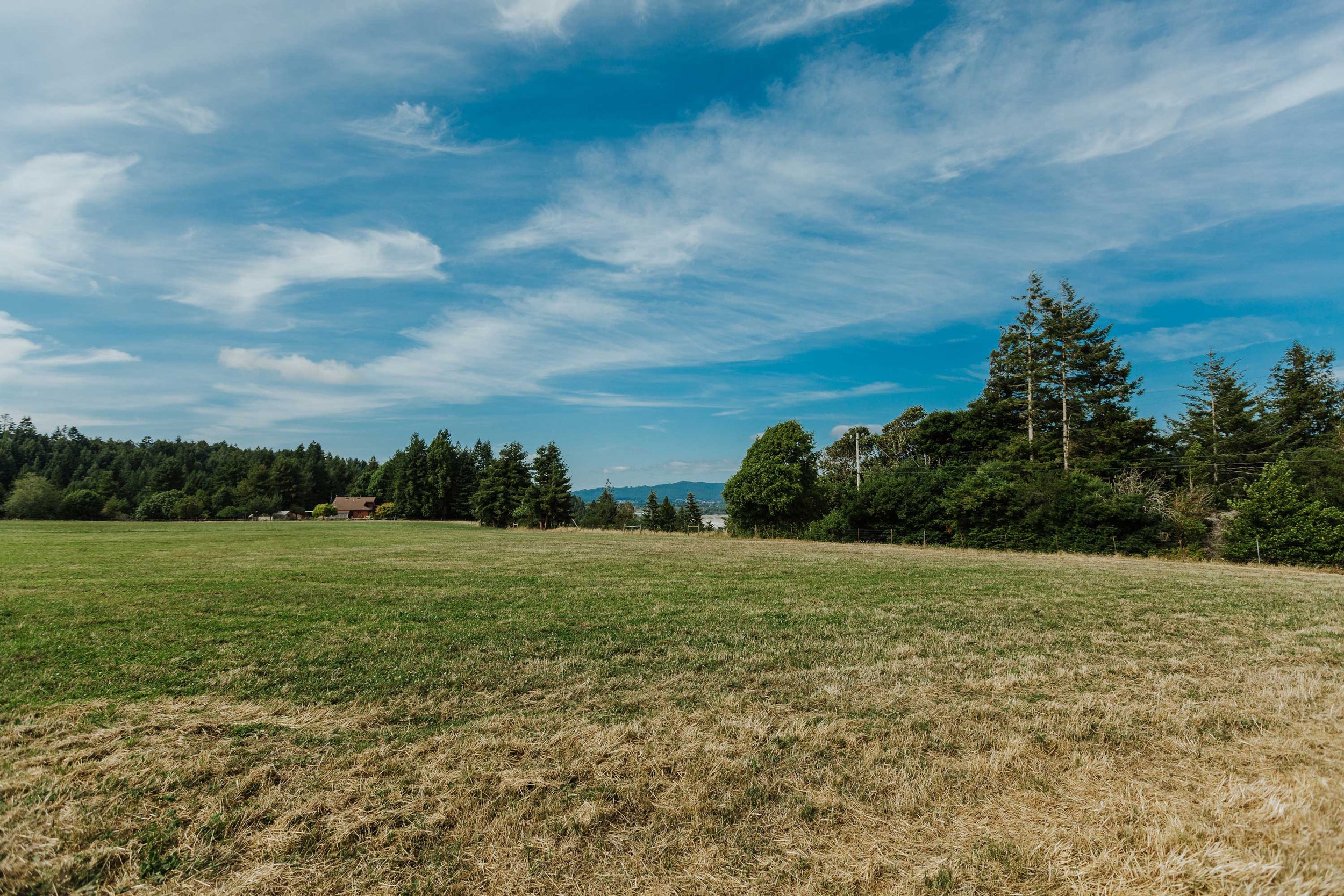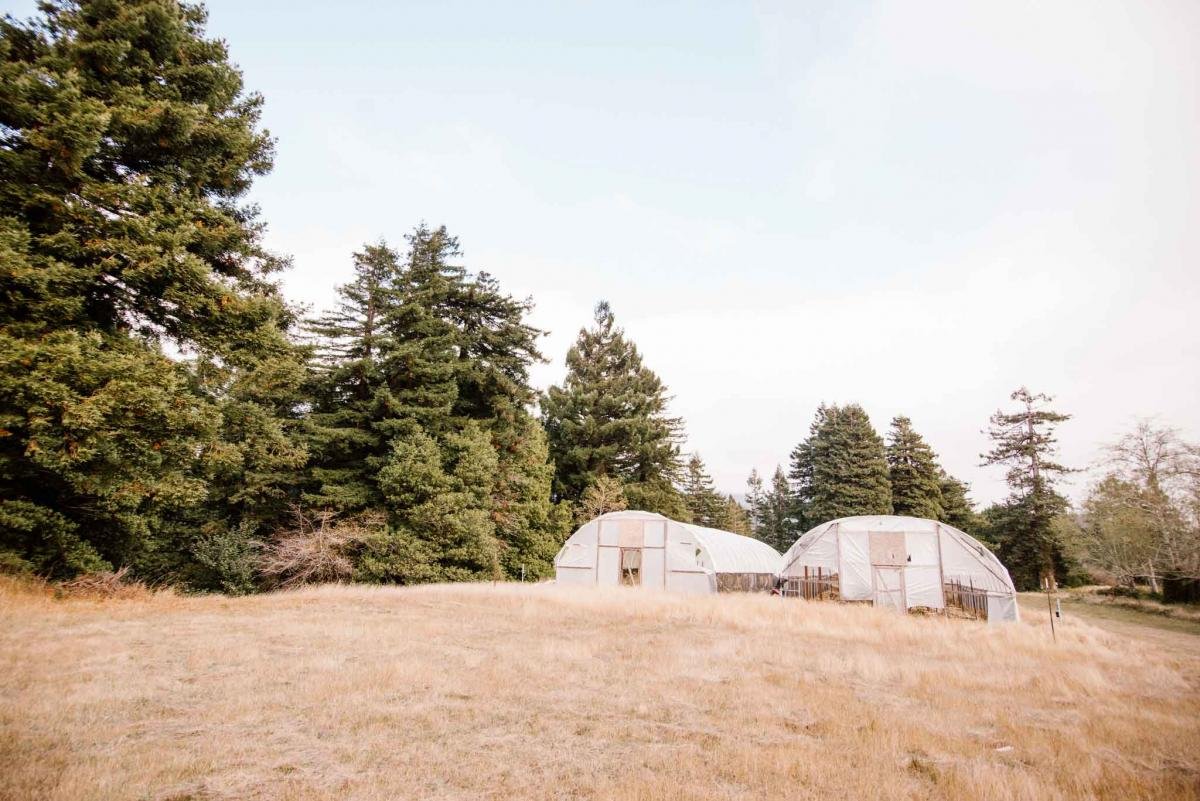Buying the Dream
Humboldt’s Sustainable Real Estate Market
Photo by Rendy Marie Photography, courtesy of the Land Man
Escaping the city is always daydream fodder but with the normalization of remote working, many are opening their eyes to the rural life for sale in Humboldt. Local realtors report that inventory is low but prices — and interested buyers — are growing in number.
“Alternative lifestyles are on the rise,” explains cannabis industry consultant Brittney Crosby of Humboldt Compliance. With a background in real estate and development, Crosby helps property owners navigate the thick layers of red tape involved in permitting a property for cultivation. These days, she says, she’s seeing more people looking to buy their slice of the Humboldt dream — a small farm and a simple life.
“Land use is huge here,” says Crosby. “I help property owners to self-certify or at least gauge what they need.” A self-identifying tree hugger, Crosby explains that the focus of her work is educating property owners on how to improve their sustainability metrics to meet compliance standards. Without state and county permits to cultivate cannabis, a piece of land might appear to be valuable on the real estate market. But Crosby stresses that both the current state of a property, including active permits and citations, and its potential, need to be reflected in pricing.
Photo courtesy of the Land Man
“Before selling a property, everyone needs to make sure titles and owners are in line,” says Crosby, who has seen too many buyers surprised by old violations and muddy records. “The paperwork needs to be on point,” she says, adding that land bundled with an active cultivation permit is far more appealing to buyers.
Sandi DeLuca of Coldwell Banker Sellers Realty has been negotiating land sales in the Emerald Triangle for 17 years. Today her focus is helping clients navigate property transactions in the legal cannabis industry.
“We used to say always check for ‘roads, water and dogs,’” remembers DeLuca. In today’s market, she explains that both parties need to research permitting regulations, state deadlines, unrecorded violations, rules around non-transferring of state licenses, sustainability metrics and more. DeLuca stresses that working with an experienced agent who knows what to look for is critical.
One of the major obstacles in bringing a property into compliance is its location and topography. Historically, many Emerald Triangle farms have been tucked away on old logging roads or hidden beneath the redwood canopy on a mountainside. While such sites were conveniently covert for eluding law enforcement, today’s farm “on the hill” often means steep grades, shoddy roads, makeshift culverts and habitat encroachment — all of which need to be remedied to meet environmental regulations set by the state.
In addition to abiding by regulations from multiple agencies, landowners wanting to cultivate must meet the highest standards for sustainability in California agriculture. For example, while the Department of Food and Agriculture allows for 0.7 parts per million of the fungicide Boscalid for almond production, acceptable use for cannabis is 0.01 parts per million. Instead, licensed cultivators must utilize integrated pest management — beneficial insects, fungi or bacteria that minimize pests and diseases — and products like neem oil, citric acid and soybean oil in lieu of pesticides.
“Standards of compliance are extremely difficult to achieve for the average farmer,” explains Iris Koski of Tributary Biological Consulting.
Photo by Sarah Liz Photography, courtesy of The Land Man.
The first county in California to regulate cultivation, Humboldt County passed the Commercial Medical Marijuana Land Use Ordinance in 2016 (many iterations have since been passed as well). While consultants and state agencies can help landowners come into compliance, realtors have expertise in transferring a property’s land use history into market value.
“The most important characteristics that prospective cannabis buyers should look for in a potential new farm are suitability of the property for growing cannabis (e.g. exposure, topography, availability of water, etc.) and whether the particular parcel is permit-able,” explains Mike Willcutt, a realtor at the Humboldt Land Man office.
Over the years, Willcutt has worked with buyers from across the world who are interested in investing in Humboldt’s famous cannabis industry. “Most recently, I’ve been working with a couple of SoCal-based venture capital firms looking for potential entry points into the cannabis industry, either via direct ownership of farms, or other ancillary cannabis-related businesses,” he says.
Despite the economic chaos at play across the globe, local industry leaders believe Humboldt County’s legendary cannabis farms — particularly those operating above and beyond requisite sustainability standards — are well positioned to hold their value in an uncertain real estate market.
“People will want to live here,” says Crosby. “They’ll keep coming.”
Photo by Shaoyi Zhang, courtesy of The Land Man.




